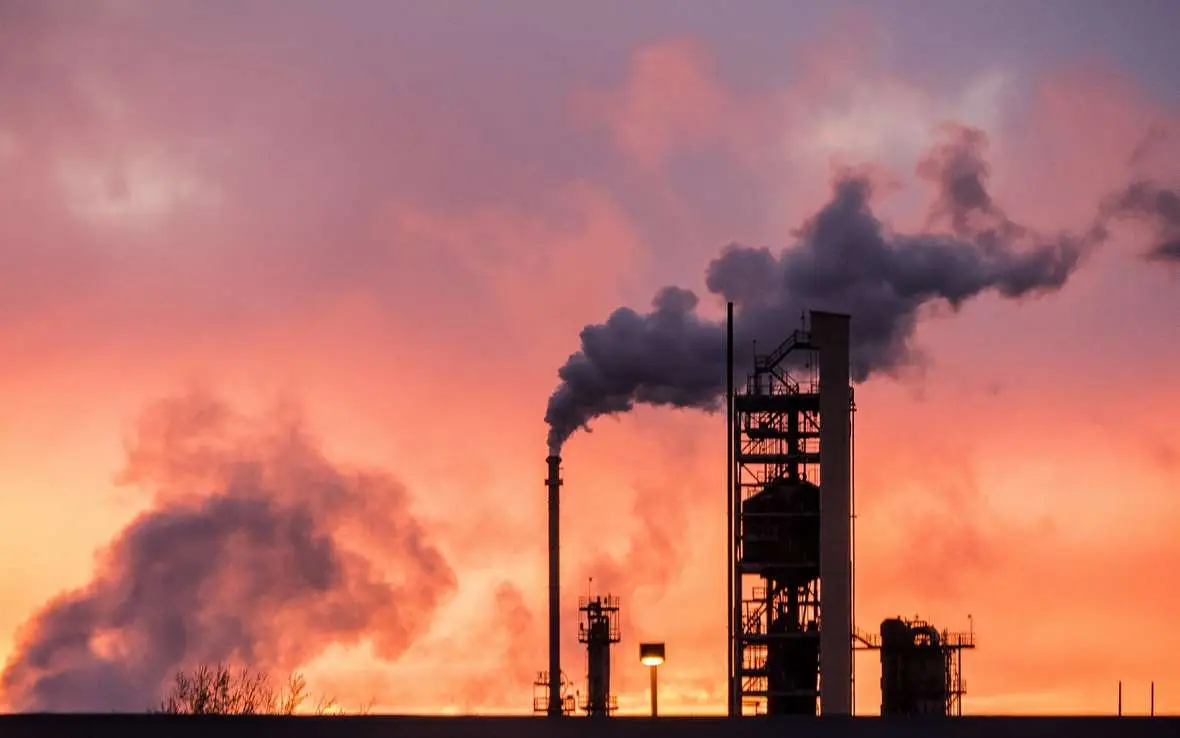The ink has barely dried on the latest global climate agreement, touted by some as a global breakthrough in the fight against climate change. But is it?
Behind the veneer of diplomacy and goodwill on display at COP 29, powerful industries—namely fossil fuel and plastic producers—continue to undermine the very goals these agreements purport to uphold. Their actions, driven by short-term profit and political influence, have not only exacerbated the climate crisis but also perpetuated one of the most insidious forms of environmental degradation: plastic pollution.
The fifth round of U.N. negotiations aimed at establishing a global treaty to combat plastic pollution concluded without a conclusive agreement. Delegates from over 100 countries advocated for capping plastic production to mitigate pollution, while oil-producing nations, notably Saudi Arabia and Russia, opposed such measures, focusing instead on managing plastic waste. This impasse led to the postponement of key decisions and the scheduling of further talks.
The primary points of contention included:
Production Caps: Proposals to limit plastic production were met with resistance from petrochemical-producing countries, which argued against restricting production.
Chemical Management: Debates centered on how to handle hazardous chemicals used in plastic products.
Financial Support: Discussions on providing financial assistance to developing countries for implementing the treaty remained unresolved.
Environmental groups expressed disappointment over the lack of progress, emphasizing the urgency of addressing the escalating plastic pollution crisis. The next round of negotiations is anticipated to focus on these unresolved issues.
Fossil fuels and plastics are inextricably linked, a reality many of the world’s leading policymakers have failed to acknowledge fully. While climate agreements focus on reducing emissions from energy production, these same agreements largely sidestep the role that plastic production plays in driving the climate crisis. Oil and gas companies, the primary producers of plastics, have used their enormous political and economic power to avoid real reform, ensuring the continued growth of an industry that has been poisoning the planet for decades. The question is: how much longer will we tolerate this hypocrisy?
Oil and gas companies are often viewed as hypocritical in the context of climate action and plastic pollution because, while they publicly commit to sustainability initiatives, their actions frequently contradict these statements. These companies, which are significant producers of fossil fuels, are also major players in the petrochemical industry—responsible for a large portion of global plastic production. Despite their influence and financial resources, these companies have largely failed to address the root cause of plastic pollution: the overproduction of plastic made from fossil fuels.
The Fossil Fuel-Plastic Nexus
The connection between fossil fuels and plastic is no secret. Nearly 12% of global oil production goes toward the manufacture of plastic products. From the moment oil is extracted, its journey often ends in the form of disposable plastic items that flood our landfills, oceans, and even our bodies through the microplastics we inadvertently consume. According to the Center for International Environmental Law, plastic production is responsible for up to 56 gigatons of greenhouse gases by 2050, exacerbating global warming.
Yet, despite these stark facts, fossil fuel and plastic producers continue to operate with impunity. These industries have used their political clout to shape climate policy in their favor, ensuring the failure of previous international climate agreements to address the full scope of their destructive activities. For example, the 2021 COP26 summit presented ambitious goals for reducing carbon emissions, but it left out a crucial factor: plastic production. Despite being one of the largest drivers of fossil fuel demand, plastic remains a side issue, under-discussed and barely regulated. This failure to address the issue allows the plastic industry to expand unchecked, with devastating environmental consequences.
Corruption and Influence: The Industry’s Undying Grip on Policy
The fossil fuel and plastic industries have long wielded enormous political influence, funding lobbyists and leveraging campaign donations to protect their bottom line. The United States, in particular, has seen firsthand how the industry can steer the conversation. According to reports by the Center for Responsive Politics, oil and gas companies have spent billions of dollars on lobbying efforts to secure favorable treatment in Congress. These efforts include weakening regulations on emissions, reducing oversight of plastic production, and enabling the continued expansion of fracking, a process that not only pollutes water supplies but also contributes to the plastic epidemic.
These companies’ efforts to avoid responsibility for their environmental damage go beyond political lobbying. The revolving door between government and industry officials has allowed them to maintain a tight grip on policy decisions that directly impact climate change and plastic production. Former executives from the fossil fuel industry giants like ExxonMobil have moved seamlessly into government positions. In contrast, those within the government have gone on to lucrative positions in these same industries. This cozy relationship between industry and government regulators results in policy that benefits corporate interests over the public good, delaying necessary climate action and shielding polluters from accountability.
According to OpenSecrets, the oil, gas, and plastics industries significantly contribute to political campaigns, with the oil and gas sector predominantly supporting Republican candidates. In the 2022 election cycle, the top recipients of oil and gas industry donations included Kevin McCarthy ($616,563), Steve Scalise ($510,000), and Frank Lucas ($500,000). The plastics industry, while smaller, also engages in political contributions, with the Plastics Industry Association raising $59,442 in the 2021-2022 cycle. In addition, the association spent $120,000 on lobbying efforts in 2021. These contributions and lobbying activities highlight both industries’ focus on influencing policy decisions in their favor.
Trump’s nomination of Chris Wright as U.S. Secretary of Energy raises serious concerns for the fight against climate change. Wright, the founder of Liberty Energy and a champion of hydraulic fracturing, has built his career on expanding fossil fuel production, particularly fracking, which has significantly contributed to the U.S. oil and gas boom. A staunch critic of climate change mitigation efforts, Wright has openly opposed policies to reduce reliance on fossil fuels. His appointment signals a troubling shift towards prioritizing energy expansion over environmental protection, making it harder to curb emissions and transition to renewable energy. In short, Wright’s leadership could set back efforts to address the climate crisis at a time when urgent action is needed.
Pennsylvania: A Hotbed of Climate-Inducing Plastic Production
Nowhere is the collusion between the fossil fuel and plastic industries more apparent than in Pennsylvania, where the fossil fuel and petrochemical industries are a major source of environmental harm. The state’s Marcellus Shale is one of the largest natural gas reserves in the world, fueling the operations of companies like ExxonMobil and Chevron. Fracking operations in the region have led to widespread water contamination, air pollution, and community displacement. At the same time, these same companies are investing heavily in plastic production, particularly along the Ohio River Valley, where massive ethane cracker plants are churning out polyethylene and polypropylene—the same materials that end up as single-use plastic bags, bottles, and food packaging.
The most notable of these facilities is Shell’s ethane cracker plant in Beaver County, which has raised environmental concerns due to its size, the emissions it produces, and its role in expanding the plastic pollution crisis. Critics argue that this plant—and others like it—demonstrates the ongoing symbiotic relationship between the fossil fuel and plastic industries. “Shell’s plant in Beaver County is a symbol of the fossil fuel and plastic industries’ unholy alliance,” said Patrick DeLuca, a local environmental activist. “They’re not just digging for oil; they’re digging a hole in our future.”
READ: Marginalized Communities Need Big Environmental Wins
The Beaver County Marcellus Awareness Community (BCMAC), founded in 2011, was created to address the serious risks posed by hydraulic fracturing (fracking) to local water sources like the Ambridge Reservoir. Over the years, BCMAC has highlighted the devastating effects of fracking, including air and water contamination, health issues, and environmental degradation. The organization has also raised concerns about the Shell ethane cracker plant in Potter Township, which has contributed to increased pollution and public health risks. BCMAC advocates for sustainable energy solutions, focusing on the harmful legacy of fossil fuels in the community. In 2024, BCMAC worked with the Partnership for Inclusive Disaster Strategies to create guidance for addressing petrochemical disasters, particularly for vulnerable populations. Today, BCMAC continues to fight for the health and safety of Beaver County residents, pushing for policy change and community awareness.
The Pennsylvania Department of Environmental Protection has come under fire for its failure to regulate these industries effectively. Despite evidence of pollution and environmental harm, the department has continued to grant permits and subsidies to these companies, arguing that the economic benefits of the jobs they provide outweigh the environmental costs. In reality, however, many of the jobs created are temporary, and the environmental costs—long-term pollution and health risks to nearby communities—far exceed the economic benefits. The state’s failure to act leaves citizens in the dark about the full extent of the damage.
Where Do We Go From Here?
The current trajectory of fossil fuel and plastic production is unsustainable. In Pennsylvania, the industry’s influence has crippled efforts to create meaningful environmental policy, and the climate agreements that seek to address the crisis are insufficient. The fossil fuel and plastic industries continue to profit, leaving communities in harm’s way and contributing to a global climate catastrophe.
In March 2024, Governor Josh Shapiro introduced a plan to combat climate change by implementing carbon pricing for power plant emissions and requiring utilities to increase renewable energy use. While this positions Pennsylvania as a leader in carbon pricing among fossil fuel-producing states, the state’s environmental policies still allow major polluters to operate unchecked. Facilities responsible for a significant portion of greenhouse gas emissions, including the burgeoning petrochemical and plastic industries, continue to harm the environment. The expansion of plastic production, driven by these industries, exacerbates pollution, contributes to climate change, and threatens public health. To truly protect Pennsylvania’s environment and its people, we need to not only hold these industries accountable but also move toward phasing out harmful plastic production and closing down facilities that contribute to both carbon emissions and plastic waste. Governor Shapiro’s plan must be followed by strong enforcement and a commitment to ending the state’s role as a major producer of plastic pollution.
READ: New Pennsylvania Shell Plant Brings Pollution and Plastic. We’re Fighting Back.
During the last Trump administration, the oil and gas industry experienced significant regulatory rollbacks. The administration reversed over 100 environmental regulations, including those aimed at reducing carbon dioxide and methane emissions, protecting wetlands, and conserving public lands. This deregulatory approach was supported by industry leaders who argued that fewer regulations would boost economic growth and energy production. However, some executives, such as TotalEnergies CEO Patrick Pouyanné, cautioned against eliminating climate regulations, warning that it could damage the industry’s reputation and provoke public backlash.
Despite these concerns, the administration pressed forward with its deregulatory agenda, aiming to enhance energy dominance and reduce bureaucratic hurdles for fossil fuel industries.
As environmental journalist Naomi Klein aptly put it, “The climate crisis is not just a crisis of science—it’s a crisis of power.” The solution lies not only in understanding the science but in dismantling the structures of power that protect the corporations responsible for climate destruction. Only then can we hope for a future free from the chokehold of plastic and fossil fuel pollution.
Alisa Shargorodsky is the founder and director of ECHO Systems, a nonprofit dedicated to reducing single-use plastic waste and building sustainable infrastructure in Philadelphia. Through innovative reuse models, ECHO is expanding channels for circularity and reuse in the food, beverage, and event sectors, advancing equity and environmental sustainability. We would be grateful for your support during our winter fundraising campaign to help us continue this important work. If your company has a corporate giving program, we kindly ask you to consider doubling your donation this holiday season to amplify your impact further.






